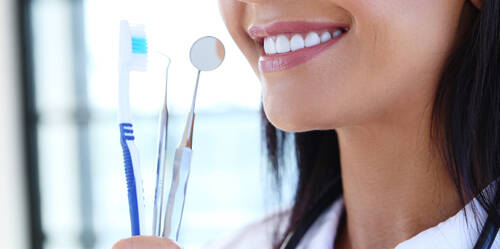
22 Nov The Science of a Healthy Smile: How It Impacts Your Body
Your smile is more than just a reflection of your mood or a means of communication—it’s a gateway to your overall health. While many people associate a bright smile with good hygiene or confidence, its impact goes far beyond appearances. The science of oral health reveals that maintaining a healthy smile is essential if you want to look after your entire body.
Here’s how your oral health connects to your overall health and why prioritizing your smile is one of the best things you can do for your body.
The Oral-Systemic Connection
The mouth is often referred to as the “window to the body,” and for good reason. It’s home to a diverse community of bacteria, both beneficial and harmful. While proper oral hygiene keeps harmful bacteria in check, neglecting your oral health can allow these bacteria to grow unchecked, leading to oral infections like gum disease and tooth decay.
But the effects don’t stop there. The inflammation and bacteria associated with oral health issues can spread to other body parts, contributing to systemic health problems.
The Confidence-Health Connection
A healthy smile doesn’t just affect your physical health; it affects your mental and emotional well-being. A bright, pain-free smile can boost your self-esteem and improve your social interactions. Conversely, dental issues like bad breath, discoloration, or missing teeth can lead to embarrassment or anxiety, impacting your overall quality of life.
Feeling confident about your smile can encourage better communication, stronger relationships, and even professional success.
Key Connections Between Oral and Overall Health:
- Heart Disease
- Diabetes
- Respiratory Health
- Pregnancy Complications
The Science of Prevention
Maintaining a healthy smile isn’t just about reacting to problems when they arise—it’s about preventing them in the first place. Preventative oral care is the foundation of a healthy smile, saving you from potential discomfort, costly treatments, and long-term health risks. By adopting proactive habits and scheduling regular dental visits, you can guarantee that your teeth and gums remain in excellent condition.
- Brushing and Flossing
Brushing your teeth with fluoride toothpaste removes plaque, a sticky film of bacteria that is the number one cause of tooth decay and gum disease. Equally important is flossing, which cleans areas a toothbrush can’t reach, such as between teeth and below the gumline. These daily habits are your first line of defense.
Pro Tip: Replace your toothbrush or its head every three months, or sooner if the bristles become frayed, for optimal cleaning effectiveness.
- Regular Dental Visits
Routine checkups allow dentists to spot early signs of oral health issues before they escalate. Professional cleanings remove any stubborn plaque and tartar you have that regular brushing can’t tackle. For residents of South London, booking in at the Direct Dental Balham dental practice can be a game-changer. Whether it’s a routine cleaning, teeth whitening, or addressing specific concerns, professional care ensures your oral health is contributing to your overall well-being.
- Hydration and Saliva Production
Staying hydrated helps maintain saliva flow, which naturally washes away food particles and bacteria. It also neutralizes acids in the mouth.
Pro Tip: Rinse your mouth out with water after consuming acidic or sugary foods to reduce their impact on your teeth.
- Lifestyle Choices
Your lifestyle habits also influence your oral health. Avoiding smoking and tobacco products reduces your risk of gum disease and oral cancer. Limiting alcohol consumption helps protect the soft tissues in your mouth from irritation and long-term damage.
- Fluoride Treatments
Fluoride treatments strengthen tooth enamel, making them more resistant to decay. These preventative measures are especially beneficial for children but can be valuable for adults as well.
The information on MedicalResearch.com is provided for educational purposes only, and is in no way intended to diagnose, cure, or treat any medical or other condition.
Some links may be sponsored. Products are not warranted or endorsed.
Always seek the advice of your physician or other qualified health and ask your doctor any questions you may have regarding a medical condition. In addition to all other limitations and disclaimers in this agreement, service provider and its third party providers disclaim any liability or loss in connection with the content provided on this website.
Last Updated on November 22, 2024 by Marie Benz MD FAAD
